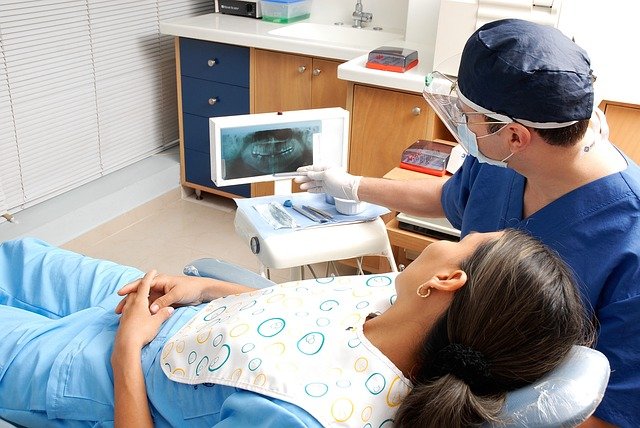Detox Centers in the U.S.: Key Considerations for Care
Detox centers in the United States provide structured environments that support the safe removal of substances from the body. With medical oversight, monitored settings, and tailored care plans, these facilities help individuals begin recovery with stability and proper guidance.

Choosing appropriate detoxification care requires understanding the types of facilities available, the medical protocols they follow, and the specific approaches used for different substances. The U.S. healthcare system offers numerous pathways to begin recovery, each with distinct characteristics and standards of care.
What Are Detox Centers in the US
Detox centers are specialized healthcare facilities that provide medical supervision and support during the withdrawal process from drugs or alcohol. These centers operate under state and federal regulations, staffed by medical professionals including physicians, nurses, and addiction specialists who monitor vital signs and manage withdrawal symptoms.
In the United States, detox centers fall into several categories. Inpatient or residential detox facilities offer 24-hour medical care in a controlled environment, typically recommended for individuals with severe dependencies or those at risk of dangerous withdrawal complications. Outpatient detox programs allow patients to receive treatment while living at home, requiring regular visits to the facility for monitoring and medication management. Hospital-based detox units provide the highest level of medical intervention, equipped to handle complex cases involving multiple substances or co-occurring medical conditions.
Accreditation standards from organizations such as The Joint Commission or the Commission on Accreditation of Rehabilitation Facilities help ensure quality care. Many centers also accept various insurance plans, though coverage varies significantly based on the provider and specific policy terms.
Understanding Medical Detox Programs
Medical detox programs utilize evidence-based protocols to manage withdrawal symptoms safely and minimize discomfort. These programs begin with comprehensive assessments that evaluate the type and severity of substance use, medical history, mental health status, and social circumstances.
The detoxification process typically unfolds in three stages: evaluation, stabilization, and preparation for ongoing treatment. During evaluation, medical staff conduct physical examinations, toxicology screenings, and psychological assessments to develop individualized treatment plans. Stabilization involves managing acute withdrawal symptoms through medications, nutritional support, and constant monitoring. The final phase prepares patients for continued treatment, whether through residential rehabilitation, outpatient therapy, or other recovery programs.
Medical detox programs distinguish themselves from non-medical approaches by providing pharmacological interventions that reduce withdrawal severity. Medications are carefully selected based on the substance involved and individual patient factors. Programs also address co-occurring disorders, recognizing that many individuals struggle with both substance dependence and mental health conditions requiring simultaneous treatment.
Alcohol Detox Treatment Approaches
Alcohol withdrawal can produce serious medical complications, making supervised detoxification particularly important for heavy or long-term drinkers. Treatment approaches for alcohol detox typically involve medications that reduce seizure risk and manage symptoms such as tremors, anxiety, nausea, and insomnia.
Benzodiazepines remain the most commonly prescribed medications for alcohol withdrawal, administered according to fixed schedules or symptom-triggered protocols. Medical staff use standardized assessment tools to measure withdrawal severity and adjust medication dosages accordingly. Thiamine and other vitamins are routinely administered to address nutritional deficiencies common among individuals with alcohol use disorders.
The duration of alcohol detox varies based on drinking history and individual physiology, typically lasting between three to seven days for acute withdrawal symptoms. However, some individuals experience prolonged withdrawal symptoms that may persist for weeks or months, requiring extended monitoring and support. Treatment approaches emphasize gradual stabilization rather than rapid detoxification, prioritizing patient safety and comfort throughout the process.
Substance Withdrawal Care Standards
Care standards for substance withdrawal have evolved significantly, guided by research and clinical experience. Professional organizations including the American Society of Addiction Medicine have established guidelines that define appropriate levels of care based on withdrawal risk, medical complications, and psychosocial factors.
Standardized assessment protocols help clinicians determine the appropriate setting and intensity of care. These assessments consider six dimensions: acute intoxication and withdrawal potential, biomedical conditions and complications, emotional and behavioral conditions, treatment acceptance and resistance, relapse potential, and recovery environment. Based on these factors, patients are placed in settings ranging from outpatient monitoring to medically managed intensive inpatient care.
Quality care standards also emphasize the importance of compassionate, non-judgmental treatment. Staff training includes trauma-informed care principles, recognizing that many individuals seeking detox services have experienced significant adversity. Privacy protections under federal regulations ensure confidentiality for substance use disorder treatment records, encouraging individuals to seek help without fear of discrimination.
Drug Detox Options Available
Detoxification approaches vary significantly depending on the substance involved. Opioid detox may utilize medications such as buprenorphine or methadone to ease withdrawal symptoms and reduce cravings, sometimes continuing as maintenance therapy. Stimulant withdrawal, while typically not medically dangerous, can involve severe psychological symptoms requiring supportive care and monitoring for depression or suicidal ideation.
Benzodiazepine detox requires careful tapering protocols due to seizure risks associated with abrupt discontinuation. Synthetic drug detoxification presents unique challenges, as withdrawal patterns may be unpredictable and less understood than those for traditional substances. Polysubstance use, involving multiple drugs simultaneously, complicates detox protocols and requires comprehensive medical management.
Some facilities offer specialized programs for specific populations, including pregnant women, adolescents, or individuals with co-occurring psychiatric disorders. Gender-specific programs recognize different needs and treatment responses between men and women. Culturally competent care addresses the diverse backgrounds of patients, incorporating language services and culturally relevant support systems.
| Service Type | Typical Duration | Key Features | Estimated Cost Range |
|---|---|---|---|
| Inpatient Medical Detox | 3-10 days | 24-hour medical supervision, medication management, controlled environment | $300-$800 per day |
| Outpatient Detox | 1-2 weeks | Regular medical monitoring, medication dispensing, home-based recovery | $100-$500 per day |
| Hospital-Based Detox | 3-7 days | Intensive medical care, emergency intervention capability, complex case management | $500-$1,500 per day |
| Residential Detox with Rehab | 30-90 days | Extended stabilization, integrated treatment programming, structured environment | $5,000-$30,000 total |
Prices, rates, or cost estimates mentioned in this article are based on the latest available information but may change over time. Independent research is advised before making financial decisions.
Preparing for Treatment
Successful detoxification requires more than medical intervention alone. Preparing for treatment involves practical considerations such as arranging time away from work or family responsibilities, securing insurance authorization, and gathering necessary personal items for residential stays. Many facilities provide pre-admission counseling to help individuals understand what to expect and address concerns about the process.
Family involvement can significantly impact treatment outcomes. Some centers offer family education programs that help loved ones understand addiction, withdrawal, and recovery processes. Creating a supportive home environment for post-detox transition increases the likelihood of sustained recovery.
Detoxification represents only the beginning of recovery, not a complete treatment. Research consistently shows that individuals who transition from detox into comprehensive treatment programs achieve better long-term outcomes than those who receive detox services alone. Continuity of care planning begins during detox, connecting patients with therapists, support groups, and ongoing medical care to address the chronic nature of substance use disorders.
This article is for informational purposes only and should not be considered medical advice. Please consult a qualified healthcare professional for personalized guidance and treatment.




